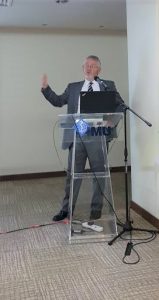[fusion_builder_container hundred_percent=”no” equal_height_columns=”no” menu_anchor=”” hide_on_mobile=”small-visibility,medium-visibility,large-visibility” class=”” id=”” background_color=”” background_image=”” background_position=”center center” background_repeat=”no-repeat” fade=”no” background_parallax=”none” parallax_speed=”0.3″ video_mp4=”” video_webm=”” video_ogv=”” video_url=”” video_aspect_ratio=”16:9″ video_loop=”yes” video_mute=”yes” overlay_color=”” overlay_opacity=”0.5″ video_preview_image=”” border_size=”” border_color=”” border_style=”solid” padding_top=”” padding_bottom=”” padding_left=”” padding_right=””][fusion_builder_row][fusion_builder_column type=”1_1″ layout=”1_1″ background_position=”left top” background_color=”” border_size=”” border_color=”” border_style=”solid” border_position=”all” spacing=”yes” background_image=”” background_repeat=”no-repeat” padding=”” margin_top=”0px” margin_bottom=”0px” class=”” id=”” animation_type=”” animation_speed=”0.3″ animation_direction=”left” hide_on_mobile=”small-visibility,medium-visibility,large-visibility” center_content=”no” last=”no” min_height=”” hover_type=”none” link=””][fusion_text] The rise in the prevalence of type 2 diabetes (T2D) is a major global clinical and public health challenge that is strongly inequitable, since 75% of cases occur in low- and middle-income countries. As the disease is chronic, expensive to treat, and tends to affect economically active people, the economic costs of dealing with diabetes do not only pose a threat to health systems but also to the sustainable development of the system. The Institute for Research, Development, and Innovation (IRDI) of the International Medical University (IMU) had successfully organised a Translational Research Seminar Series titled Type 2 Diabetes: The Searc h for Sustainable Solutions featuring Prof Nick Wareham on 10 July 2019 at the IMU Bukit Jalil campus. Prof Nick Wareham is the Director of the United Kingdom Clinical Research Collaboration (UKCRC) Centre for Diet and Activity Research (CEDAR) and the National Institute for Health Research (NIHR) Global Health Group on Diet and Activity Research (GDAR). His principle research interests are in understanding the aetiology of T2D and in developing strategies for prevention and early detection including at the individual and societal level. The main objective of this seminar was to discuss on the alternative sustainable solutions to tackle this chronic disease. The pattern of the incidence and prevalence of T2D between countries suggests that there is a complex interaction between lifestyles, obesity, and genetic and developmental susceptibility resulting in the development of the disorder. The interplay between susceptibility factors and lifestyles is understood in broad terms, but our understanding at the molecular level is still limited. At the population level, the societal influences on diet and physical activity that drive the epidemic are known, but much of this understanding is restricted to developed countries. Besides, studies conducted in people at high risk of diabetes prove that T2D is preventable but information on how it should be prevented in real-world settings is still lacking.
h for Sustainable Solutions featuring Prof Nick Wareham on 10 July 2019 at the IMU Bukit Jalil campus. Prof Nick Wareham is the Director of the United Kingdom Clinical Research Collaboration (UKCRC) Centre for Diet and Activity Research (CEDAR) and the National Institute for Health Research (NIHR) Global Health Group on Diet and Activity Research (GDAR). His principle research interests are in understanding the aetiology of T2D and in developing strategies for prevention and early detection including at the individual and societal level. The main objective of this seminar was to discuss on the alternative sustainable solutions to tackle this chronic disease. The pattern of the incidence and prevalence of T2D between countries suggests that there is a complex interaction between lifestyles, obesity, and genetic and developmental susceptibility resulting in the development of the disorder. The interplay between susceptibility factors and lifestyles is understood in broad terms, but our understanding at the molecular level is still limited. At the population level, the societal influences on diet and physical activity that drive the epidemic are known, but much of this understanding is restricted to developed countries. Besides, studies conducted in people at high risk of diabetes prove that T2D is preventable but information on how it should be prevented in real-world settings is still lacking.
This seminar provided insights on the efforts and challenges to translate the research interventions into practical programmes in tackling the epidemic as well as the gap between the health benefits that are achievable in a clinical trial as opposed to those that are realised in the real world. Essentially, there is potential to develop sustainable solutions that narrow inequalities, are economically affordable, support rather than hinder economic development, and can bring about the long-term changes in public health outcomes.
On top of that, there was also a session to discuss on research collaboration opportunities among Prof Nick and IMU researchers following the talk. The IRDI team had also made site visits to Klinik Kesihatan 2 Seremban and Hospital Putrajaya with Prof Nick to explore on research collaborations. [/fusion_text][fusion_table]
[/fusion_table][/fusion_builder_column][/fusion_builder_row][/fusion_builder_container]

